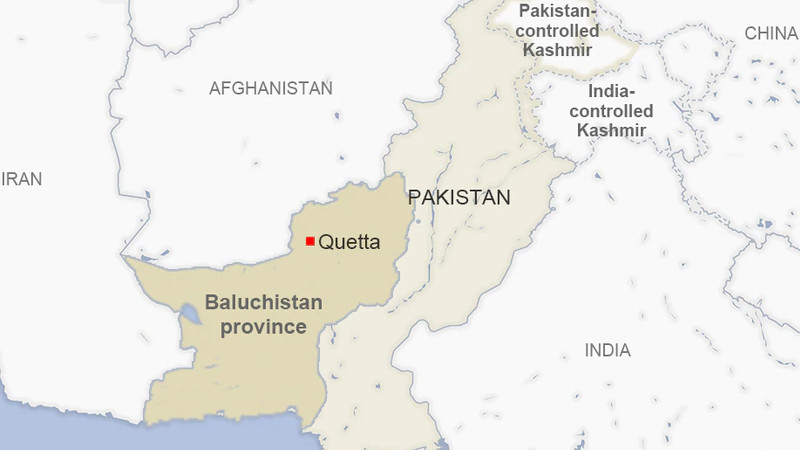
Baluchistan, the largest and most resource-rich province of Pakistan, has long been a region of political complexity, ethnic diversity, and socio-economic challenges. However, recent trends reveal a dangerous external involvement, particularly by foreign elements and ethnic groups, aimed at inciting Baloch youth against the state. This external influence, rooted in cross-border interventions and foreign-backed insurgencies, serves to hinder development in Baluchistan while promoting instability. A thorough examination of the situation suggests that these protests and insurgencies are not the product of genuine grievances, but rather the result of carefully orchestrated campaigns by anti-state actors.
The involvement of external ethnic groups and foreign elements in the protests across Baluchistan underscores the coordinated effort to destabilize the province. These foreign influences are not new to Baluchistan’s socio-political landscape. Neighboring countries with vested interests in destabilizing Pakistan have long sought to exploit Baluchistan’s vulnerabilities, using ethnic fault lines and socio-economic disparities to fuel unrest. These external actors capitalize on the sense of marginalization felt by certain segments of the Baloch population to incite youth into rebellion.
Cross-border influences, particularly from Afghanistan and Iran, have contributed to the growing unrest. Armed groups, many with ties to external intelligence agencies, exploit the porous borders of Baluchistan to operate and organize protests under the guise of ethnic or nationalistic movements. This involvement of foreign elements is not an isolated occurrence, but part of a broader strategy aimed at weakening Pakistan by turning its own citizens against the state.
The Gwadar port city, a cornerstone of Pakistan’s economic future due to its role in the China-Pakistan Economic Corridor (CPEC), has become a focal point for protests. These protests, although large in number, do not represent the majority view of the people of Balochistan. Rather, they are often organized by a vocal minority, backed by anti-state actors, to create the illusion of widespread dissent.
Foreign-backed insurgent groups exploit the socio-economic challenges faced by some communities in Baluchistan, particularly around Gwadar, to portray themselves as champions of the people’s cause. However, these groups are more concerned with advancing their own political and ideological objectives than addressing the real issues faced by the local population. Their goal is to disrupt the region’s development projects, particularly those associated with CPEC, by creating chaos and instability, which aligns with the interests of foreign powers.
While Baluchistan has faced legitimate socio-economic challenges, the narrative of resistance and insurgency being driven purely by local grievances is a myth. In reality, Baluchistan’s insurgency is largely fueled by foreign-backed elements, including militant groups funded and trained by external intelligence agencies. These insurgent groups are heavily armed and well-organized, far beyond the capacity of what a local grassroots movement could muster.
Foreign governments, particularly India, have been accused of providing direct support to these insurgent groups in order to destabilize Pakistan. This is evident in the apprehension of Indian intelligence operatives and their close ties to separatist movements within Baluchistan. The funding, arms, and logistical support provided to these groups by foreign powers further prove that the insurgency in Baluchistan is not an organic resistance movement, but a foreign-sponsored effort to create instability and hinder development.
In light of the foreign-backed insurgencies and cross-border influences, military operations in Baluchistan are a necessity to maintain law and order. The presence of heavily armed militant groups, funded by external forces, has led to a situation where law enforcement agencies alone cannot effectively counter the insurgency. Military operations are critical in dismantling the infrastructure of these groups, disrupting their supply chains, and restoring the state’s writ in affected areas.
Critics of military operations often portray them as heavy-handed or oppressive, but in the context of Baluchistan, they are essential to maintaining the stability necessary for development. The alternative, allowing foreign-backed insurgencies to gain strength, would lead to further chaos and suffering for the people of Baluchistan. The primary victims of this insurgency are the local population, who are caught between militant violence and the state’s efforts to restore peace.
The capture of Kulbhushan Yadav, a serving Indian Navy officer and agent of the Indian intelligence agency RAW (Research and Analysis Wing), in Baluchistan in 2016, serves as undeniable proof of Indian state-sponsored terrorism in the region. Yadav’s confession, in which he admitted to orchestrating terror attacks and fueling separatist movements in Baluchistan, highlights India’s involvement in destabilizing the province.
The Yadav case is a glaring example of how foreign powers, particularly India, seek to manipulate the internal dynamics of Baluchistan to further their own strategic objectives. Yadav’s activities were aimed at weakening Pakistan by inciting violence and promoting separatist sentiments in Baluchistan. His capture provided the international community with concrete evidence of India’s role in sponsoring terrorism on Pakistani soil.
The situation in Baluchistan is far from a simple case of local grievances spiraling into insurgency. Instead, it is a complex web of foreign involvement, cross-border influences, and external ethnic groups seeking to incite Baloch youth against the state. These foreign-backed insurgencies are designed to hinder development and destabilize the region, preventing Pakistan from realizing the full potential of projects like CPEC.
Military operations and state intervention are necessary to counter these insurgent groups and restore peace in Baluchistan. The capture of Indian agent Kulbhushan Yadav provides clear evidence of the external forces at play, underscoring the need for a coordinated effort to protect the sovereignty and stability of Baluchistan. As long as foreign elements continue to interfere in the region, the path to development will remain fraught with challenges.